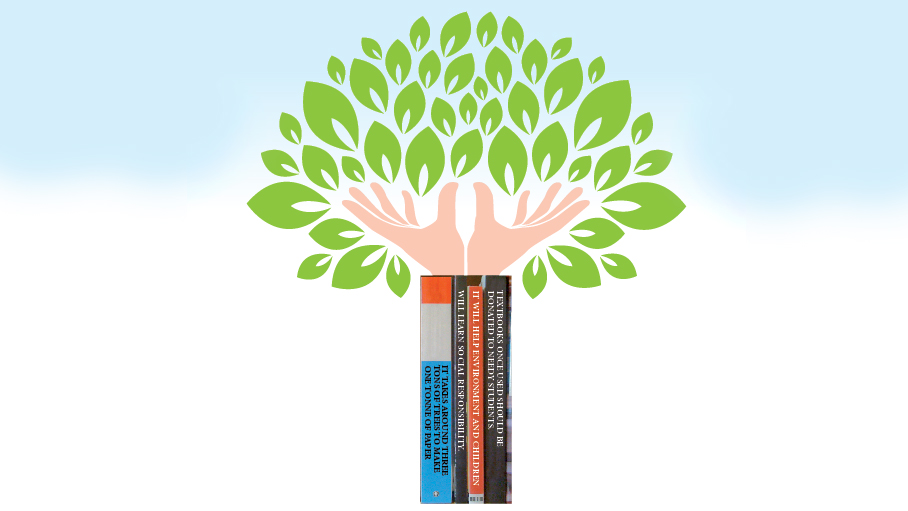

Once read, books become old and they are discarded or placed amid junk. Textbooks are also no difference. Thousands of them are thrown to waste at the end of every academic year blissfully forgetting, ‘one person’s trash is another person’s treasure’.
Instead of throwing unwanted books, even in some cases, appliances, tools or clothes, if donated to the needy, you will not only be reducing waste, but also helping others.
Although there are a few charities and students in some schools collect old textbooks to be handed to the needy, more initiatives are required create an awareness about the reuse of books, feel experts.
“Textbook recycling initiatives not only help parents to reduce expenditure of buying new books, but also cultivate positive attitudes in students”, said Syed al Wahaibi, an educationist at the Ministry of Higher Education.
According to him, to roll out a successful textbook recycling programme, a collective support from teachers, parents and even students is essential.
“Every year thousands of new textbooks are printed, bought and used. At the same time, almost the same number of textbooks and course material find their way to the landfill sites”, Syed lamented.
REUSE, RECYCLE
Still, some schools join hands with the alumni and parent teacher associations for the collection of used textbooks.
Also there are some charities, thrift stores and non-profit organisations accept used books and other study materials so that they could be recycled for the use of other students.
“Reuse of textbooks will conserve resources, finances and educate children to reuse and recycle and taking care of the environment”, said Fatima al Lawati, a volunteer with Muscat-based Dar al Atta.
Parents should be encouraged by schools to actively participate in donation of second-hand textbooks as well as other forms of recycling programmes”, she urged.
The Indian schools in Oman have a unique initiative with a dual aim of developing social responsibility among students and minimising wastage of books.
‘Gift a Book: Help the Needy, and Save the Environment’ scheme is committed to preserving the textbooks so that the next batch of students can reuse the textbooks in the next term.
SUPPORT OF PARENTS
According to Dr Baby Sam Samuel, chairman of Board of Directors of Indian Schools, at the beginning of each academic year, parents are issued a circular explaining the objectives and arrangements of the scheme, to create awareness and bring in parental support in this endeavour.
“The initiative not only benefits the environment but also simultaneously reduces expenses and help the needy, said Dr Baby Sam. He said that the Indian Schools are committed to creating a value base for the children that continually inspires them to consider the impact of their actions on the society and the planet.
“This seemingly small step by them is, nevertheless, a strong and visible indicator of the power they possess to change the world around them for the better, explained Dr Baby Sam.
There is a greater need that text books are shared and re-utilised while establishing a culture of environmental responsibility.
According to an EcoMena report, it takes around three tonnes of trees to make one tonne of paper which also utilise huge quantity of water per tonne than any other product in the world.
AVOID POLLUTION
Paper making also produces high levels of air and water pollution which can be avoided. Each tonne of recycled paper can save 17 trees and 7,000 gallons of water. It takes one tree to make 25 books.
“By recycling our books, we are giving that tree a new purpose and reducing deforestation. It is suggested that schools should hold semi-annual book sales to clear out old inventory”, says the report.
Oman Observer is now on the WhatsApp channel. Click here



